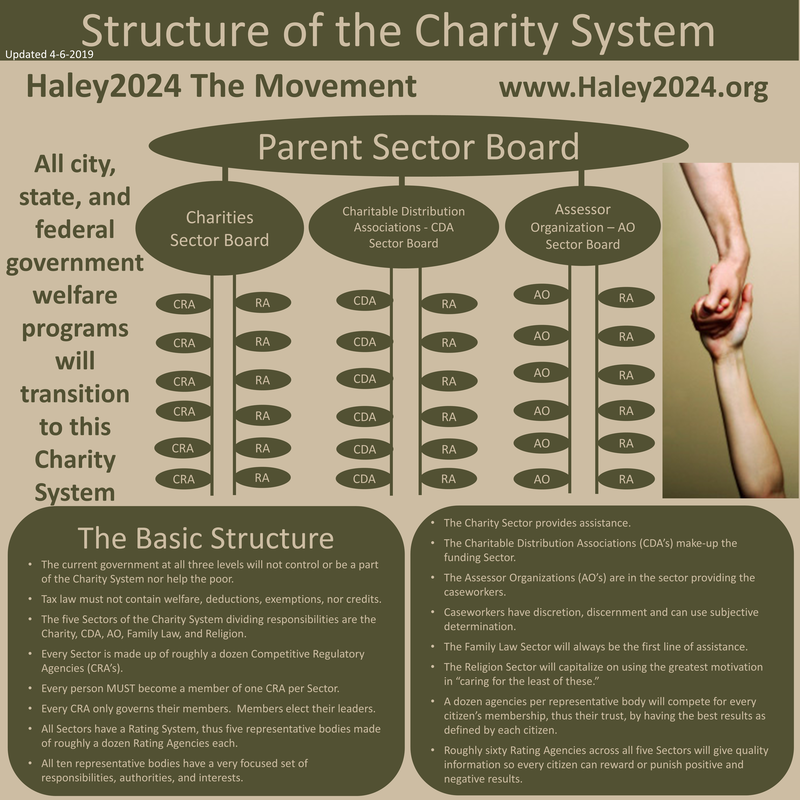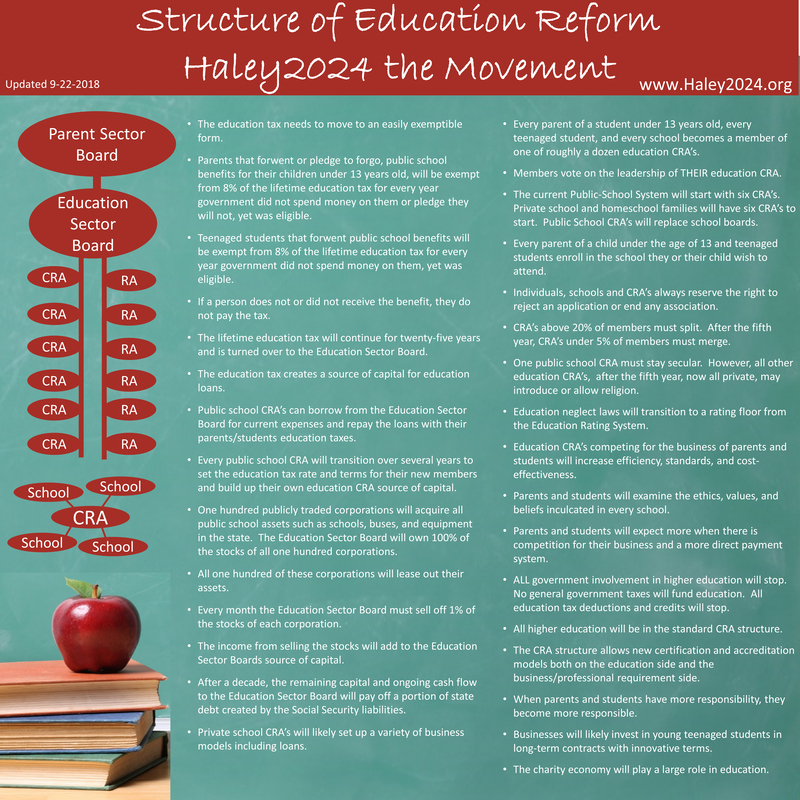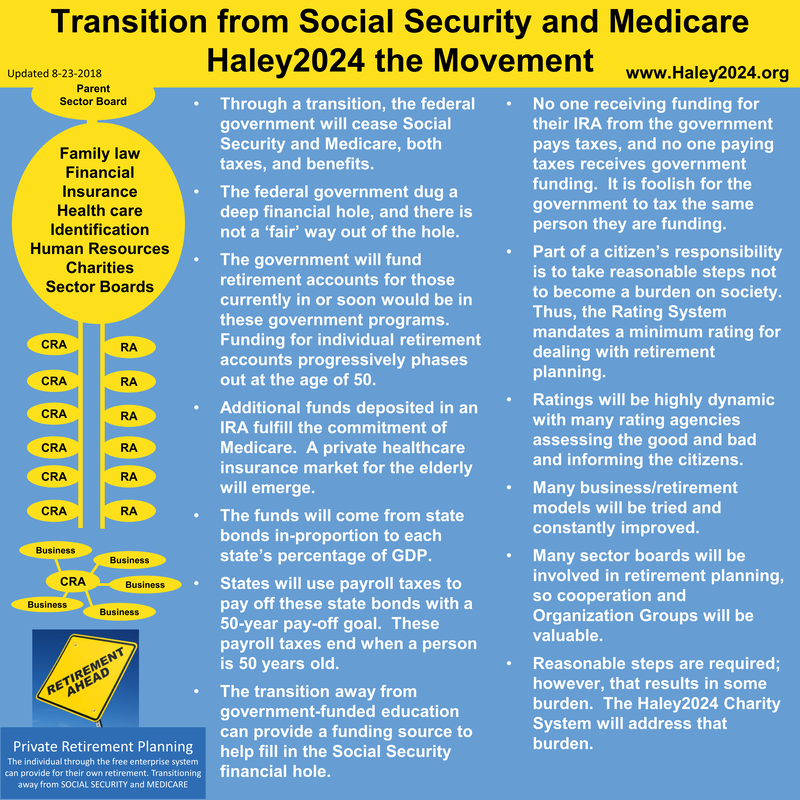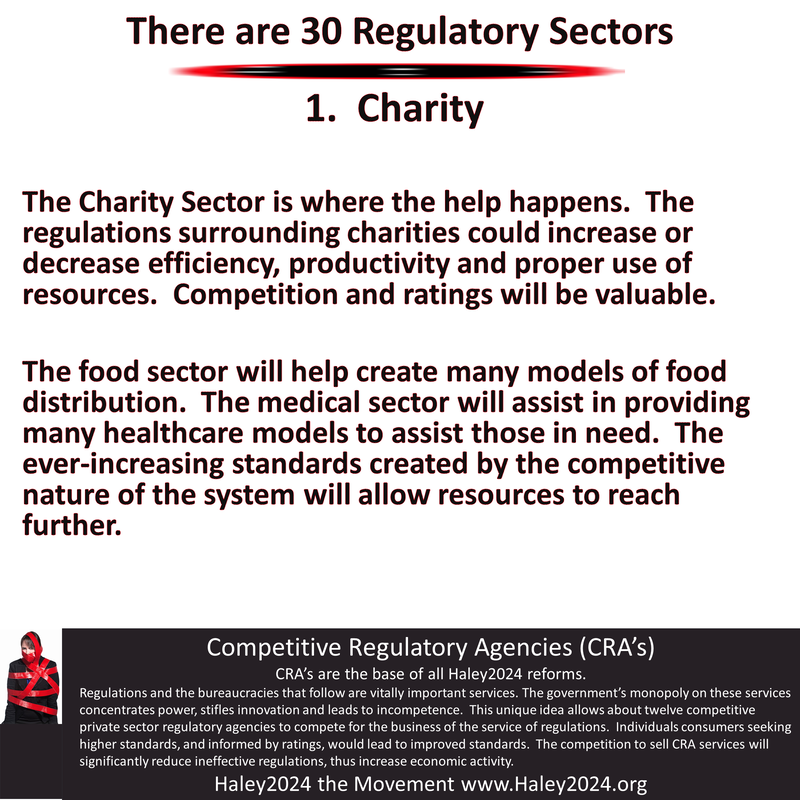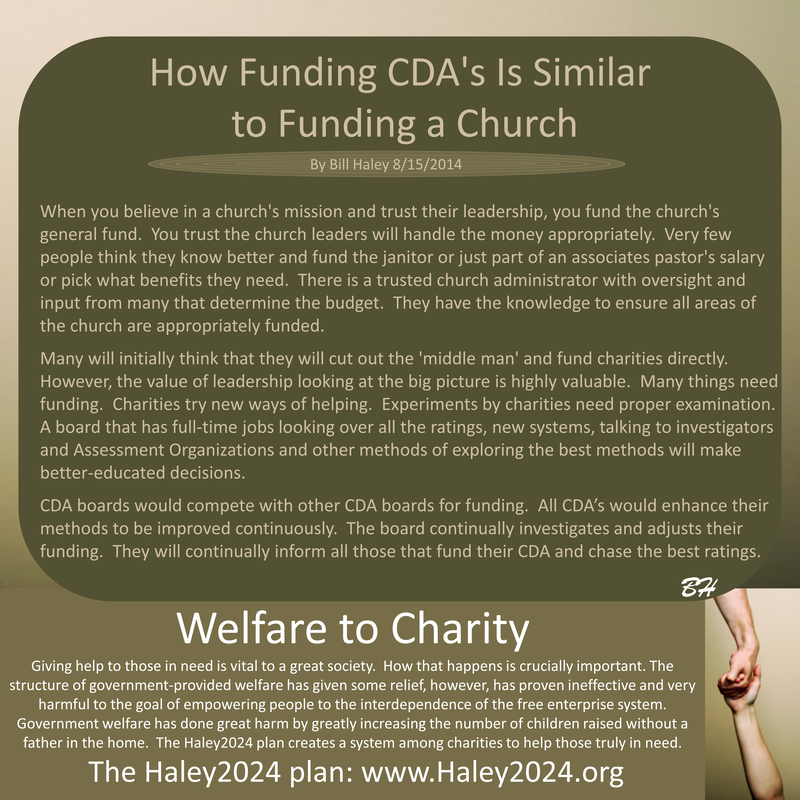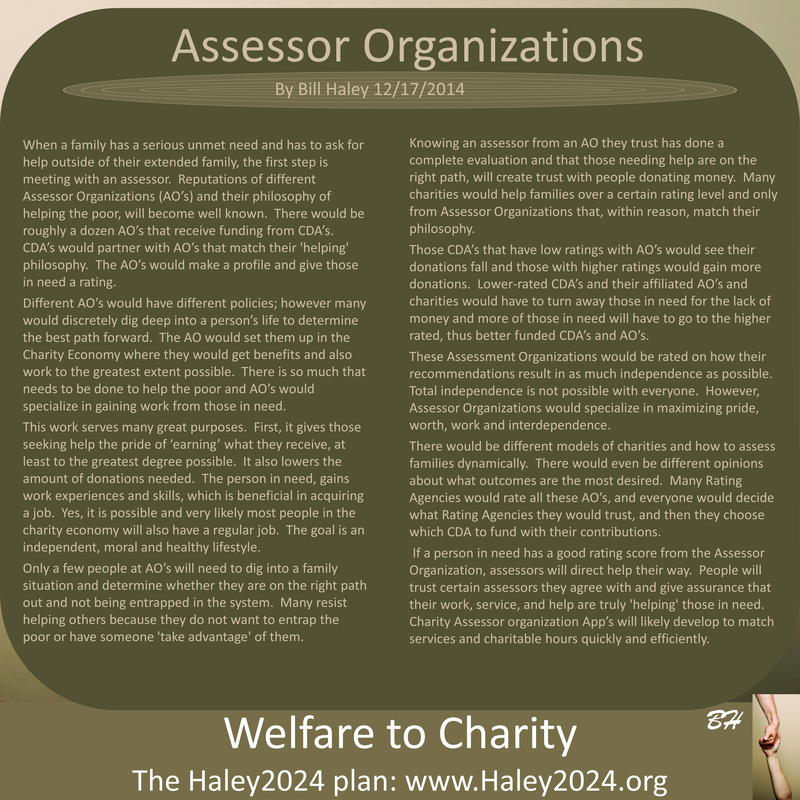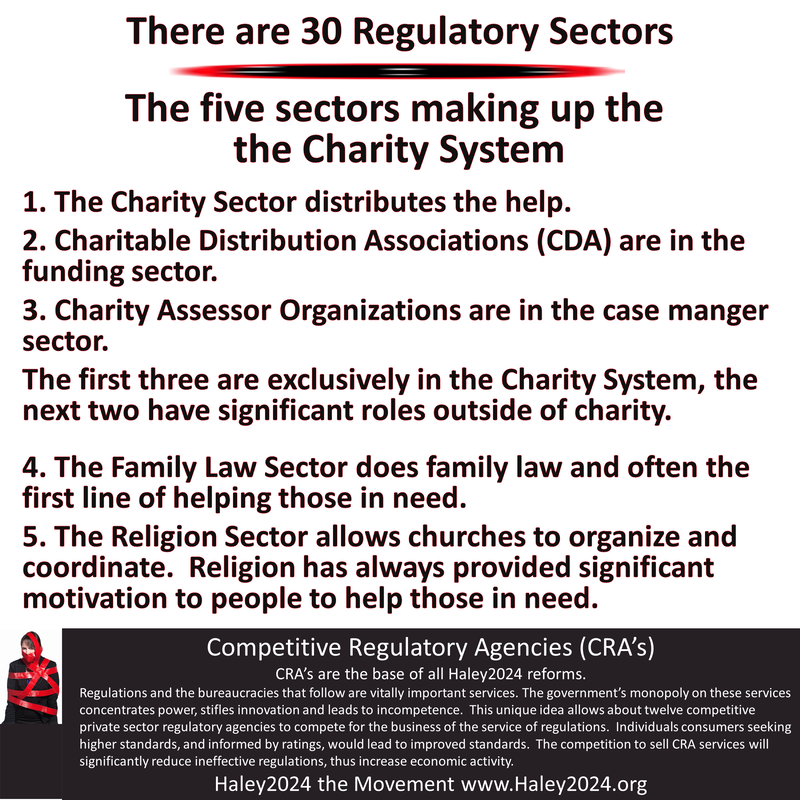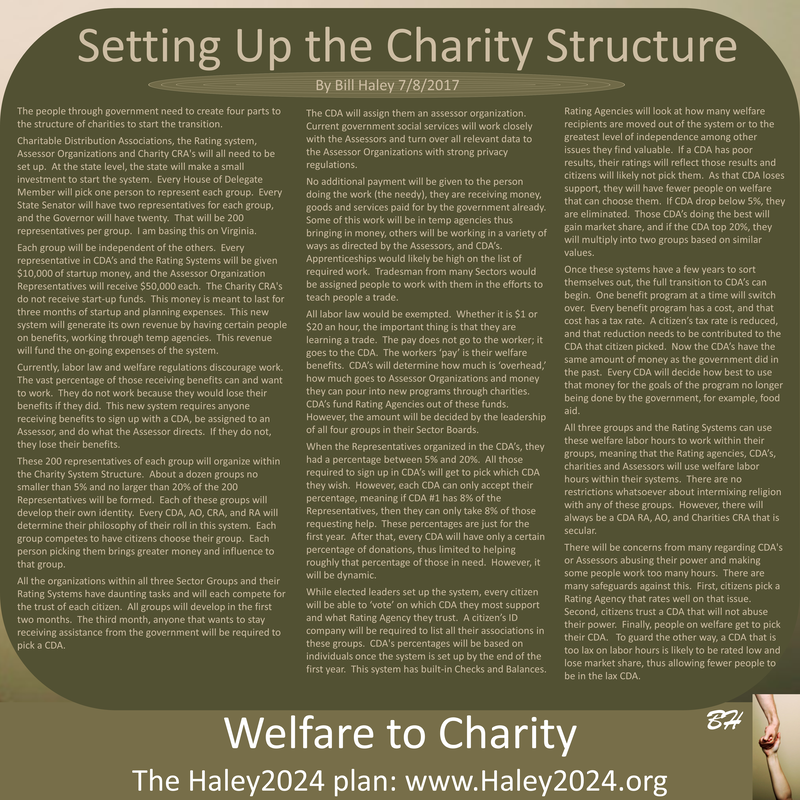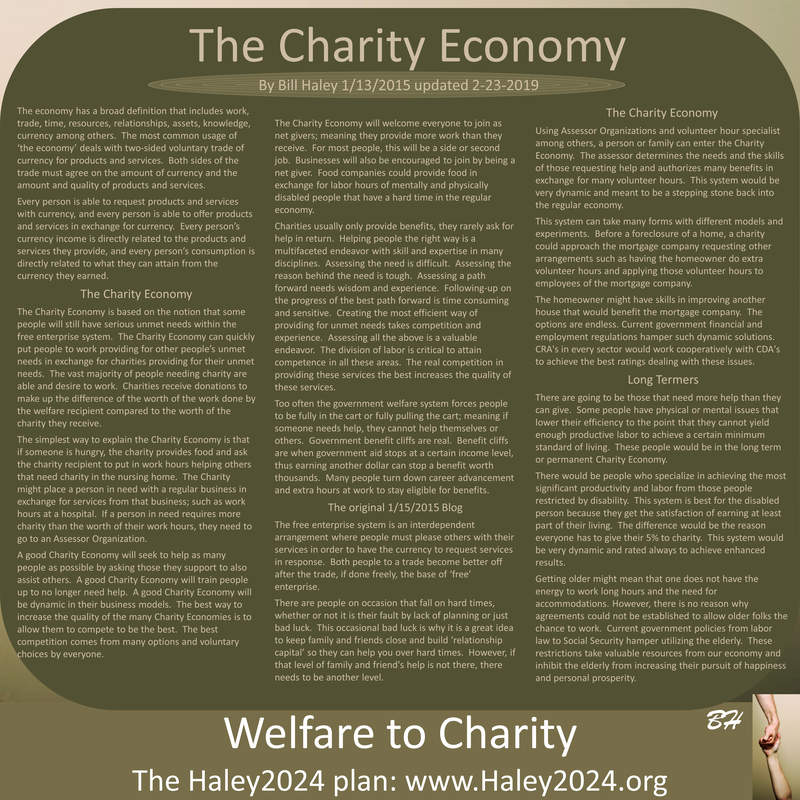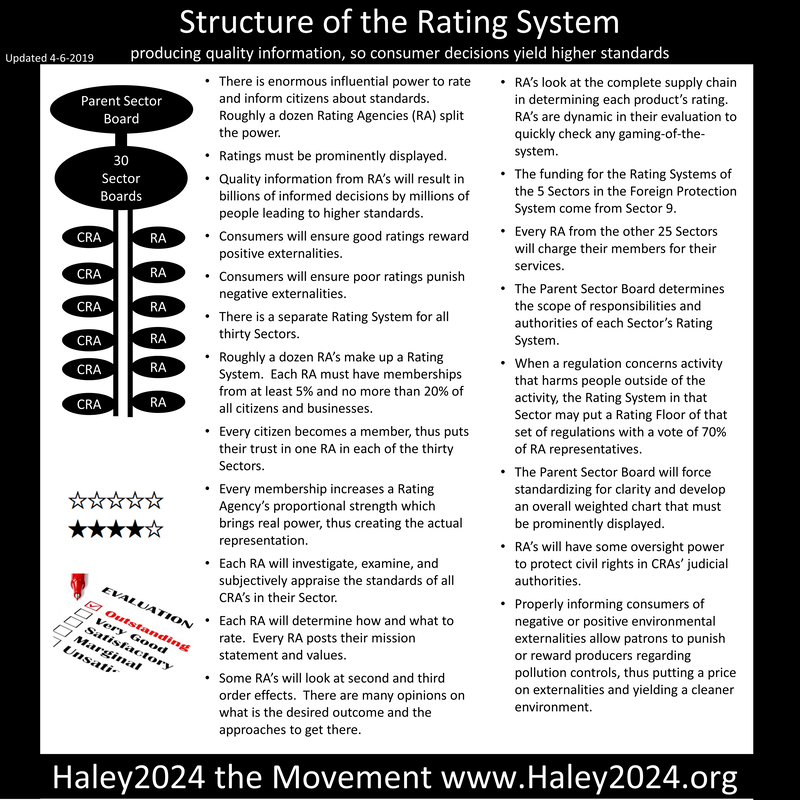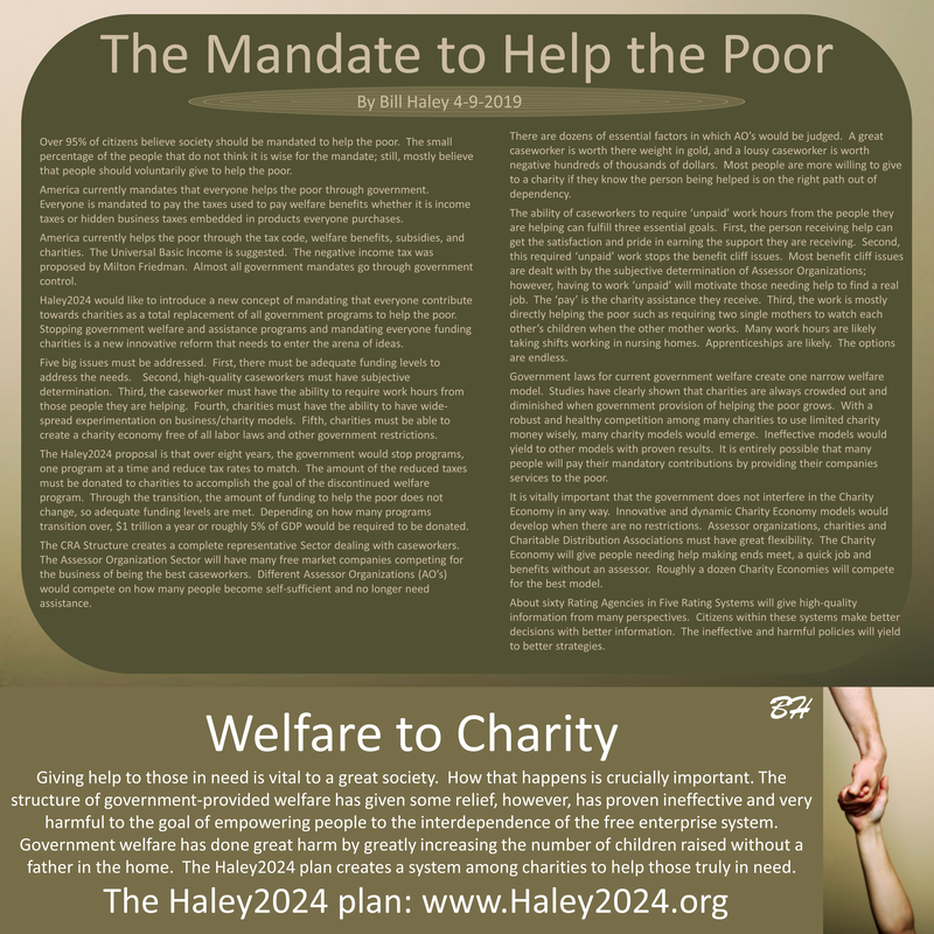| Haley2024 would like to introduce a new concept of mandating that everyone contribute towards charities as a total replacement of all government programs to help the poor. Stopping government welfare and assistance programs and mandating everyone funding charities is a new innovative reform that needs to enter the arena of ideas. |
| Five big issues must be addressed. First, there must be adequate funding levels to address the needs. Second, high-quality caseworkers must have subjective determination. Third, the caseworker must have the ability to require work hours from those people they are helping. Fourth, charities must have the ability to have wide-spread experimentation on business/charity models. Fifth, charities must be able to create a charity economy free of all labor laws and other government restrictions. |
| The Haley2024 proposal is that over eight years, the government would stop programs, one program at a time and reduce tax rates to match. The amount of the reduced taxes must be donated to charities to accomplish the goal of the discontinued welfare program. Through the transition, the amount of funding to help the poor does not change, so adequate funding levels are met. Depending on how many programs transition over, $1 trillion a year or roughly 5% of GDP would be required to be donated. |
| The CRA Structure creates a complete representative Sector dealing with caseworkers. The Assessor Organization Sector will have many free market companies competing for the business of being the best caseworkers. Different Assessor Organizations (AO’s) would compete on how many people become self-sufficient and no longer need assistance. |
| There are dozens of essential factors in which AO’s would be judged. A great caseworker is worth there weight in gold, and a lousy caseworker is worth negative hundreds of thousands of dollars. Most people are more willing to give to a charity if they know the person being helped is on the right path out of dependency. |
| The ability of caseworkers to require ‘unpaid’ work hours from the people they are helping can fulfill three essential goals. First, the person receiving help can get the satisfaction and pride in earning the support they are receiving. Second, this required ‘unpaid’ work stops the benefit cliff issues. Most benefit cliff issues are dealt with by the subjective determination of Assessor Organizations; however, having to work ‘unpaid’ will motivate those needing help to find a real job. |
| The ‘pay’ is the charity assistance they receive. Third, the work is mostly directly helping the poor such as requiring two single mothers to watch each other’s children when the other mother works. Many work hours are likely taking shifts working in nursing homes. Apprenticeships are likely. The options are endless. |
| Government laws for current government welfare create one narrow welfare model. Studies have clearly shown that charities are always crowded out and diminished when government provision of helping the poor grows. With a robust and healthy competition among many charities to use limited charity money wisely, many charity models would emerge. Ineffective models would yield to other models with proven results. It is entirely possible that many people will pay their mandatory contributions by providing their companies services to the poor. |
| It is vitally important that the government does not interfere in the Charity Economy in any way. Innovative and dynamic Charity Economy models would develop when there are no restrictions. Assessor organizations, charities and Charitable Distribution Associations must have great flexibility. The Charity Economy will give people needing help making ends meet, a quick job and benefits without an assessor. Roughly a dozen Charity Economies will compete for the best model. |
